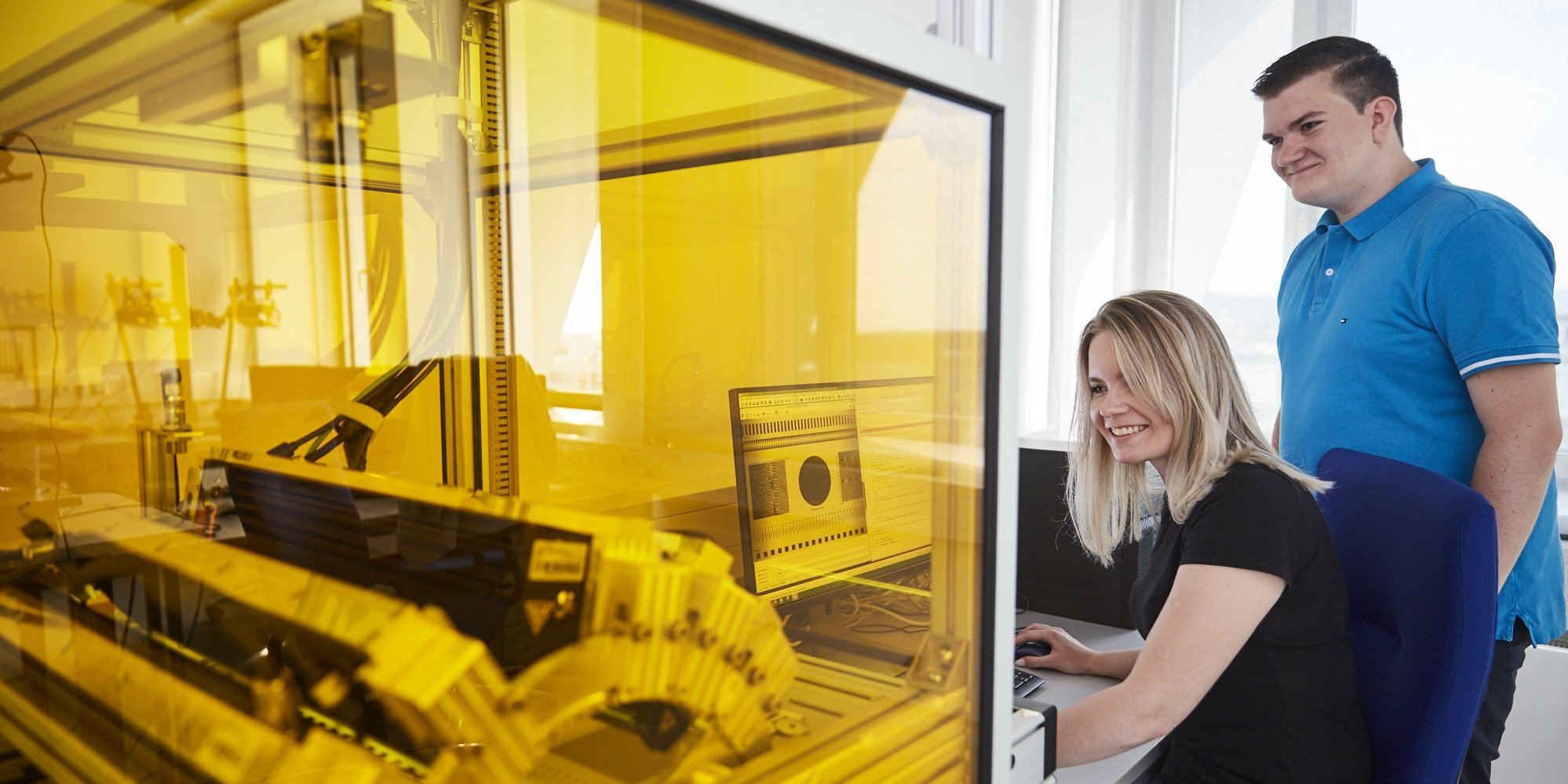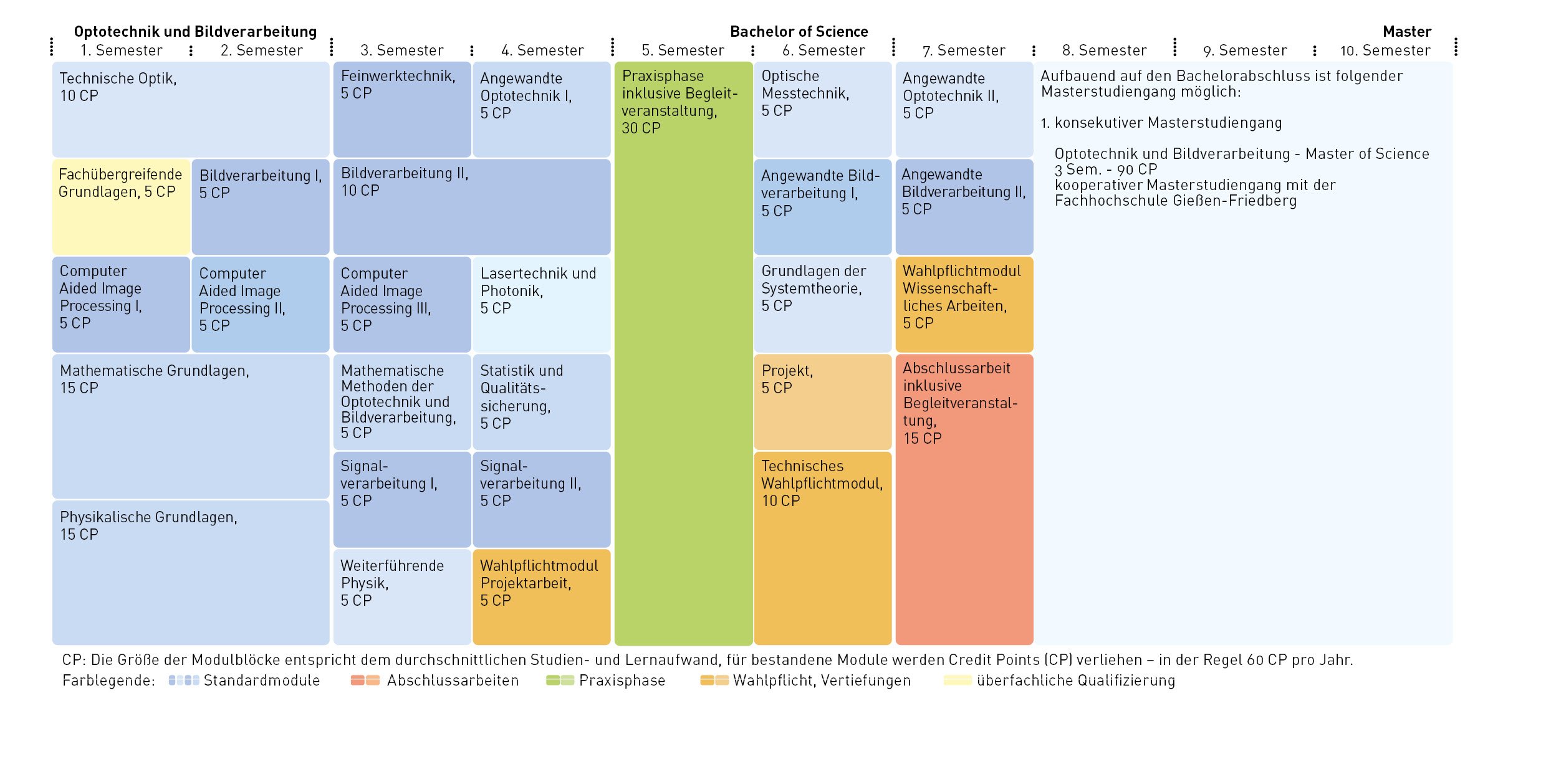
Optical Technology and Image Processing (Bachelor's degree)
| Semester | 7 Semester |
| Darmstadt | |
| Winter semester | |
| DE | |
| Without admission restriction. | |
| yes |
Content
Optotechnology and image processing offers solutions for the ecological and technical challenges of our time challenges of our time: With artificial intelligence and innovative lighting it teaches industrial plants to see and increases the sustainability of production processes. Seeing robots help people with dangerous work and alleviate the care the care crisis by supporting carers. In autonomous driving, laser sensors and image processing enable enable the vehicle to perceive its surroundings. Medical image processing is an important pillar of modern modern diagnosis and improves our quality of life. Optical sensors help us to better understand climate change and counteract it. With optical design
new high-performance lenses can be developed, e.g. for the next for the next generation of smartphone cameras. The combination of image processing and optotechnical systems is the key to success here. You can find more detailed information on the degree programme on the website of the Optical Technology and Image Processing degree programme.
Perspective
A bachelor's degree in optotechnology and image processing qualifies you for direct career entry.
Industries (selection):
- Robotics and automation technology
- Medical technology
- Sustainable production and recycling
- Mobility
- Laser technology
Building on the Bachelor's degree, the following Master's programmes are possible:
Structure
Starting from the upper school material, we first teach a solid foundation in the basic subjects. The focus is on practical applications; almost 50% of the courses take place in laboratories. During the practical phase in the 5th semester, students gain experience in a company. The bachelor's degree after the 7th semester qualifies for a profession, and it is possible to expand the knowledge in the subsequent master's degree. You can find a detailed description of the course content in the module manual (German).
Dual study model
Optical Technology and Image Processing (B.Sc.) can also be studied dual (German). In the dual form, students alternate between courses at the university, practical phases and work in the company. You can find more information at h-da.de/dual (German).
Access
The degree programme in Optotechnology and Image Processing (B.Sc.) is not admissions restricted (no NC). These school-leaving qualifications, among others, are regarded as admission requirements:
- General matriculation standard (allgemeine Hochschulreife)
- Subject-related entrance qualification (fachgebundene Hochschulreife)
- Advanced entrance qualification for universities of applied sciences (Fachhochschulreife).
A detailed description of the admission requirements can be found in the Special Provisions of the Examination Regulations (German).
